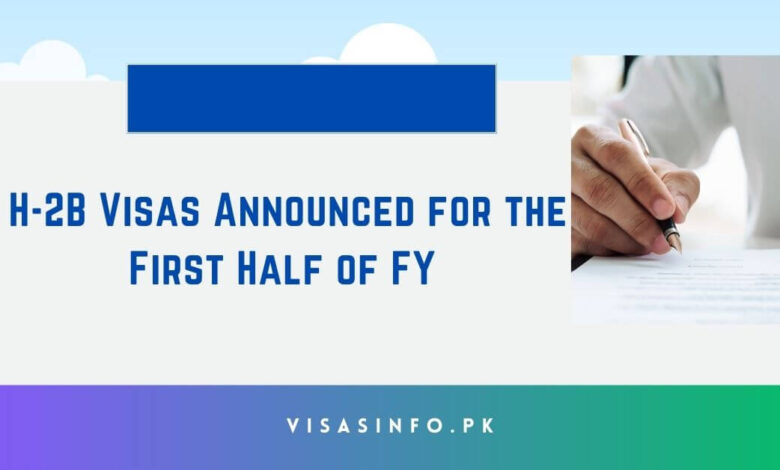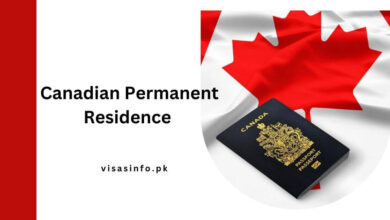H-2B Visas Announced for the First Half of FY 2024

A maximum number of additional H2B visas for returning laborers has been met during the initial phase of FY 2024. Under the H2B supplementary limit, US Citizenship and Immigration Services has received an adequate number of petitions to meet the cap for the additional 20,716 H2B visas made available for returning workers for the first half of the fiscal year 2024 with start dates on or before March 31, 2024.
Temporary Final Rule FY 2024 (TFR)
The petitions requesting supplemental H2B petitions under the FY 2024 first-half returning worker allocation were to be received by January 2024 at the latest.
USCIS continues to accept petitions for H2B non-immigrant workers with start dates on or before March 31, 2024, for the additional 20,000 visas reserved for nationals of El Salvador, Guatemala, Honduras, Haiti, Colombia, Ecuador, and Costa Rica, who are excluded from the congressionally required cap.
The FY 2024 TFR was released and took immediate effect on November 17, 2023. USCIS commenced the acceptance of H2B petitions with start dates on or before March 31, 2024, for the 20,716 returning worker allocation for the first half of FY 2024 and the 20,000 allocation for Nationals of El Salvador, Guatemala, Honduras, Haiti, Colombia, Ecuador, and Costa Rica who are exempt from the returning worker requirement.
Petitioners who have been rejected for the 20,716 returning worker allocation and whose start dates are on or before March 31, 2024, are encouraged to register under the country-specific allocation while visas are still available. As of January 12, 2024, the United States Citizenship and Immigration Services (USCIS) is currently processing petitions for 4,500 workers out of the 20,000 visas allotted for nationals of El Salvador, Guatemala, Honduras, Haiti, Colombia, Ecuador, and Costa Rica.
USCIS H 1B Visa Submission 2024 (Step-by-Step)
Organizational accounts will be implemented by USCIS to streamline the process of filing H1B applications and engaging in online communication. USCIS today announced the deployment of a series of client experience enhancements in anticipation of the H1B cap season. It is expected that the actions will enhance productivity and simplify communication between corporations and their legal representatives.
Check Also: DHS To Change H-1B Lottery System
H1B Cap Season
Organizational accounts will be implemented by USCIS to facilitate non-cap filings during the fiscal year (FY) 2025 H1B Cap Season. Organizational accounts will enable multiple individuals to collaborate on and prepare H1B registrations on behalf of a corporation or other commercial entity, as well as their legal agents.
- Form I-129 is a petition for a non-immigrant laborer.
- Associated Form I-997: request for premium processing service
This is a significant advancement, as USCIS is perpetually seeking methods to optimize and simplify our processes. stated Ur M. Jaddou, director of the United States Citizenship and Immigration Services (USCIS). The entire H1B life cycle is now electronic, from registration (if applicable) to our final decision and transmission to the Department of State. This transition will enable the introduction of organizational accounts and the online filing of I-129 H1B petitions.
The organizational accounts are anticipated to be launched by USCIS in February 2024, at which point Forms I-129 and I-97 can be submitted online. The number of duplicate H1B registrations and other frequent errors should be reduced as a result of these modifications, which simplifies the Form I-129 H1B petition procedure. Furthermore, the United States Citizenship and Immigration Services (USCIS) will relocate the paper submission of forms I-129 and I-97 from service centers to the USCIS lockbox.
Details for H-2B Visas Announced for the First Half of FY
To enhance efficiency by standardizing processes and reducing costs, USCIS will conduct two national engagements on organizational accounts on January 23 and 24, in addition to numerous smaller sessions ahead of the H1B registration period. The purpose of these events is to aid legal representatives and organizations in the process of navigating the application process.
During these sessions, individuals will have the opportunity to inquire about the organizational accounts in advance of FY 2025, the H1B electronic registration procedure, and the commencement of the online Form I-129 filing process for H1B petitions.
USCIS encourages all individuals involved in the H1B registration and petition filing process to attend these events. Invitations to these engagements will be distributed later this month. More information regarding organizational accounts will be available on the H1B electronic registration process page.
Benefits of
- Seasonal Workforce: The H-2B visa program enables U.S. employers to employ foreign workers to cover temporary, non-agricultural positions during peak seasons when there is a shortage of domestic workers. This guarantees that businesses, particularly those in the hospitality, landscaping, and construction sectors, can satisfy their labor requirements.
- Economic Stability: The acquisition of the requisite workforce through H-2B visas enables businesses to sustain operations, prevent disruptions, and satisfy customer demands, thereby contributing to economic stability and growth, particularly in sectors that rely on seasonal labor.
- Flexibility in Hiring: Employers can manage fluctuations in demand and optimize operational efficiency by obtaining H-2B visas, which allow them to bring in workers when they are most required.
- Diverse Labor Pool: Employers are granted access to a global talent pool, which enables them to recruit employees with specific skills or experience that may not be readily available in the local labor market.
H-2B Visa Grants
H-2B visas are issued twice annually, in October and April. As part of the process, employers are required to obtain a Prevailing Wage Determination (PWD) from the Department of Labor (DOL). Employers may submit a labor certification application to the DOL no earlier than ninety days before the start date of necessity.
Employers are classified according to the date of the labor certification’s filing. Group A cases are handled by the Department of Labor (DOL), followed by group B and group C. Employers who submit their labor certifications first are grouped.
Before applying to USCIS, employers must first obtain their labor certification from the DOL. By filing with the United States Citizenship and Immigration Services (USCIS) and ultimately receiving a receipt notification from USCIS, they can guarantee their position in the queue for the limited number of visas. Applicants in groups B or C are at risk of having their USCIS submissions denied because the visas have been exhausted by the time they are eligible to submit.
Congress established the H-2B program to aid US firms in augmenting their workforces; however, the program’s success is impeded by numerous impediments.
Frequently Asked Questions:
-
Are H-2B visas available?
ALERT: As of Jan. 9, 2024, USCIS has received enough petitions to reach the additional 20,716 H-2B visas made available for returning workers for the first half of FY 2024 with start dates on or before March 31, 2024, under the FY 2024 H-2B supplemental visa temporary final rule.
-
Why would the government deny an H-2B visa?
Visa applications for the H-2B are denied when the time frame requirements are not met. Workers are available in the United States to do the work. Employers do not properly comply with the positive recruitment requirements.
-
Is there an interview for the H-2B visa?
To apply for an H-2B visa, you must first fill out Form DS-160, Online Nonimmigrant Visa Application, and pay the appropriate filing fee. You will then receive a confirmation page, which you should print and save. The next step is to schedule a visa interview at the embassy or consular office.



